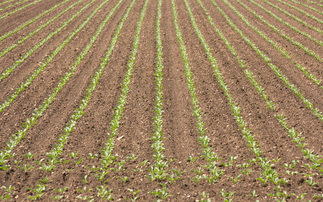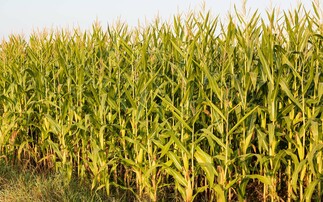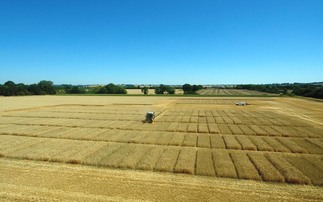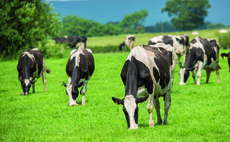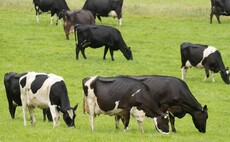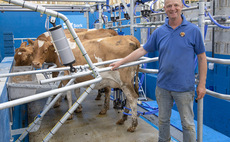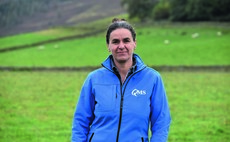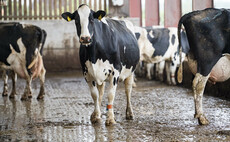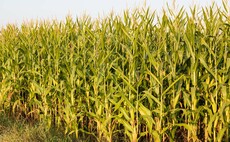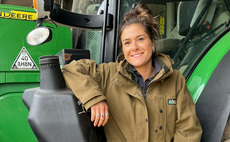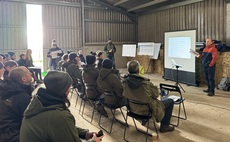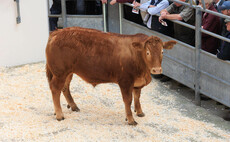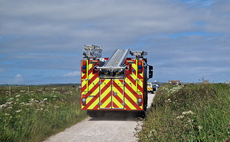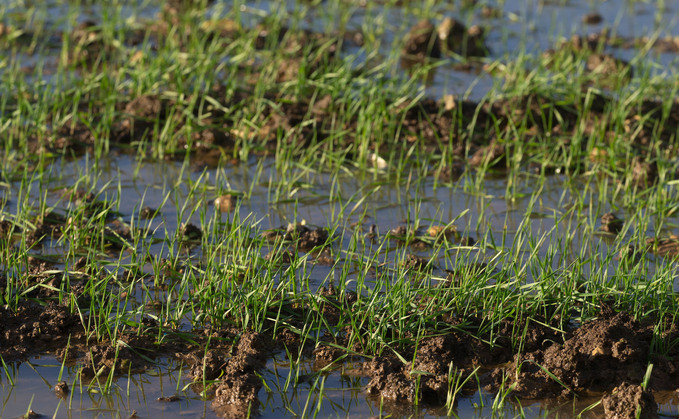
This September was the wettest that independent agronomist Sean Sparling had ever recorded in Lincolnshire, and he subsequently recorded 187mm of rain between October 1 and October 30, which is the most he has ever experienced in the county.
He says: "Currently, between 60 and 70 percent of the wheat is in the ground, so if you compare this season to 2019, there was less than 10 per cent drilled by this time of the year.
"The problem [now] is how wet things are because a lot of that wheat is now underwater."
Winter wheat can cope with its roots in water for four or five days, but it will fare a lot better if it has above-ground biomass, says Mr Sparling.
"We are already looking at fields that are partly emerged and there are bits that have to be re-drilled, but there is no way that we are going to travel on any of this land."
In addition, in some cases, pre-emergence herbicides applied to target black-grass have been washed down to where the seed is and are affecting germination, so crops are emerging in patches.
Mr Sparling says determining the next steps for winter wheat in Lincolnshire will be a waiting game.
"We can make thin crops thicker in spring by rolling, applying early nitrogen, using growth regulators and foliar nitrogen, phosphate and potash, but we will not know what we are dealing with until it has dried out," he says.
Read more: How to keep growing wheat on land with a historic black-grass issue
North West
Further west, in Cheshire and North Staffordshire, Spunhill agronomist Harry Gibson describes drilling progress as being a ‘mixed bag' ranging from zero to 100 per cent completed across his area, largely dependent on what the previous crop was and if it has been harvested.
He says: "The maize has done well, but we are getting to the point now where it is getting later [in the season] and with the shorter day lengths the ground just is not drying as quickly."
East Midlands
Leicestershire farmer Will Oliver has drilled 50 per cent of his 270 hectares planned for winter wheat, with the remaining yet to be completed as there is still maize in the ground.
"We combine our maize, so we are just picking our moments and taking the maize off and drilling the wheat straight behind," he says.
Mr Oliver has chosen to drill KWS Extase and KWS Dawsum winter wheat varieties this year at a variable rate, with the earlier drilled crops' seed rates ranging from 150-180 seeds per sq.m and the later crops' seed rates increased to 200-250 seeds/sq.m.
Read more: How one farmer is finishing lambs on winter wheat
South England
Cornwall-based Hutchinsons agronomist James Whatty says that 80 per cent of farms in the south have completed winter wheat drilling.
He says: "We are fortunate in the respect that the majority [of farms] are still operated on a plough-based system, so we have been able to cope with [the weather] a bit better."
Some growers in the region have decided against waiting to drill the remaining wheat because of the bad weather, but as in the north of England, some are waiting for the last of the maize to be harvested.
Toby Reich, head of seeds at Elsoms Seeds, says this autumn is similar to 2019.
He says: "It has got wet very quickly this season, so people are feeling slightly anxious about how much [seed they] can get in the ground."
Most wheat will have been drilled, he says.
"But it just depends where, because as soon as you start going north towards Durham, only half of the crops are in the ground, but going further west towards Worcester, it is a real spread from 40 to 60 per cent, and even places like Lincolnshire can vary massively depending on the soil type and the previous crops," says Mr Reich.








